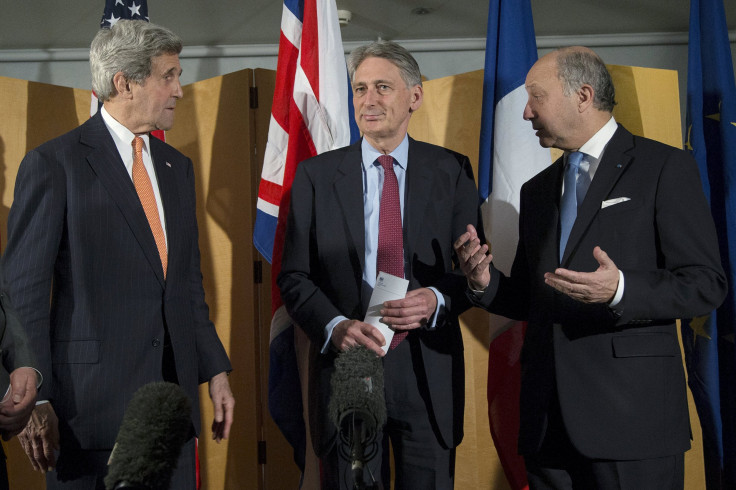France Tells UN 'Insufficient' Progress In Iran Nuclear Talks

UNITED NATIONS (Reuters) - France warned on Tuesday that "insufficient" progress has been made toward a nuclear deal between Iran and six world powers with specific disparities over research and development and the issue of sanctions.
"Iran must now make difficult choices if it truly wishes to regain the trust of the international community," French U.N. Ambassador Francois Delattre told a United Nations Security Council meeting on U.N. sanctions on Iran.
Iran, the United States, Britain, France, Germany, Russia and China are to resume negotiations in Switzerland this week, aiming for a political framework deal by the end of March and a full nuclear pact by June 30.
The biggest sticking point, Western officials say, remains Iran's demands for no limits on research and development of advanced centrifuges, which purify uranium for use in nuclear reactors or, if highly enriched, in weapons.
Another issue is sanctions. Iran wants all U.N. sanctions lifted immediately after a deal is agreed, along with the most crippling U.S. and European Union restrictions on Tehran's energy and financial sectors.
"Iran will need to show greater flexibility and take some tough decisions in the coming days if we are to achieve a deal," Britain's Deputy U.N. Ambassador Peter Wilson told the council.
During talks last week, France was insisting on a longer period of restrictions on Iran's nuclear work and also opposed the idea of suspending some U.N. sanctions relatively quickly.
"We are determined to come to a solid agreement ... which enables the establishment and guarantee in the long term of the exclusively peaceful aims of the Iranian nuclear program," Delattre said.
Iran denies allegations that it harbors nuclear weapons ambitions.
"There are still significant gaps and important choices that need to be made in these negotiations," U.S. Deputy U.N. Ambassador David Pressman told the council. "We are working to see if we can get to a political framework by the end of March that addresses the major elements of a comprehensive deal."
Russia's U.N. Ambassador Vitaly Churkin said Moscow "will continue to do everything ... to find a final and comprehensive closure of these issues related to the Iranian nuclear program and in removing from Tehran the sanctions introduced by the relevant resolutions of the U.N. Security Council."
On Saturday, Iran's top leader voiced mistrust of U.S. efforts to reach a nuclear deal.
On Sunday, Israel sent top envoys to confer with French officials about preventing a deal that Israel considers unfavorable.
© Copyright Thomson Reuters 2024. All rights reserved.











